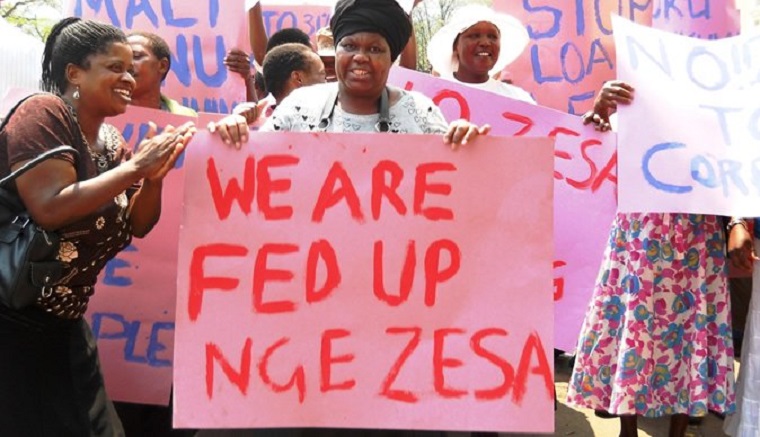The National Energy Workers Union of Zimbabwe (NEWUZ) says it will go ahead with its planned national strike unless their employer, ZESA Holdings meet its demands.
On Monday ZESA said it does not have the financial capacity to effect the salary increment or pay over $100 million in arrears which is being demanded by its workers after posting a string of losses since 2012.
It said it made a loss of $132.2 million in 2012 while in 2016 it reported a loss of $217 million and projected the deficit for last year at $393 million.
But the workers are unmoved and accused ZESA bosses of paying themselves up to $60 000 in holiday allowances annually while the power utility owes them over $100 million in unpaid wages from 2012, rejecting allegations of sabotage by their employer.
“It (the strike) can happen any time from now. It is not sabotage but we are going to resort to a collective job action, this is a right enshrined in the constitution and International Labor Law so it is not sabotage but strike action,” NEWUZ general secretary Thomas Masvingwe said at a press conference.
He said due to the five-tier pricing system existing in the southern African country, their salaries have been eroded by over 80 percent cannot now meet the high cost of living.
“The current minimum wage in the industry for an A1 employee is $306, ZESA refuses to honour this agreement and is paying A1 at $222 per month. This salary cannot sustain a living,” he said.
Masvingwe said there is nothing wrong with employees receiving holiday allowances.
“The managers have got this allowance and every year they go on international holidays with each manager spending in excess of $50 000 to $60 000 per year, the employees are asking for a 3 star local holiday allowance which will translate to $100 per day, for five days which essentially is $500,” Masvingwe said.
He said after the 2012 collective bargaining agreement, ZESA’s salary to revenue ratio is 12 percent against a regional trend of 19 – 29 percent and a national government threshold of 30 percent.- The Source
(172 VIEWS)
